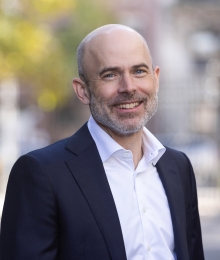S. Consumer Bankruptcy Law and Public Interest Lawyering
Course Information
- Course Number
- L8543
- Curriculum Level
- Upperclass
- Areas of Study
- Commercial Law and Transactions, Lawyering, , Racial, Economic, and Social Justice
- Type
- Seminar
- Additional Attributes
- New Course
Section 001 Information
Instructor
 Edward R. Morrison
Charles Evans Gerber Professor of Law
Edward R. Morrison
Charles Evans Gerber Professor of Law
Section Description
This course explores how fundamental social problems—homelessness, poverty, racism, gaps in social safety nets—create issues of economic justice that can be addressed through consumer bankruptcy law and other laws governing credit markets. We bring public interest lawyers to the classroom to talk about how bankruptcy impacts (or is impacted by) the social problems that their organizations address, including divorce, domestic violence, and homelessness. We will also talk to public interest lawyers whose organizations (e.g., New York’s Bankruptcy Assistance Project) focus on increasing access to bankruptcy laws. Students will meet clients at the Bankruptcy Assistance Project and similar organizations. Students will write memos and make presentations about the potential and limits of consumer bankruptcy law as a form of economic justice. The memos and presentations will draw on academic literature, presentations by practitioners, and meetings with clients.
- School Year & Semester
- January 2024
- Points
- 1
- Method of Evaluation
- Paper
- J.D Writing Credit?
- No
Learning Outcomes
- Primary
-
- At the end of the course, students will have acquired understanding of and/or facility in a specific body of law, including major policy concerns
- At the end of the course, students will have acquired understanding of and/or facility in statutory and regulatory analysis, including close reading of statutes and regulations, and application to facts
- At the end of the course, students will have acquired understanding of and/or facility in use of other disciplines in the analysis of legal problems and institutions, e.g., philosophy; economics,other social sciences; and cultural studies
- At the end of the course, students will have acquired understanding of and/or facility in ethical and professional issues
- At the end of the course, students will have acquired understanding of and/or facility in various lawyering skills, for example, client communication, interviewing, and/or counseling
Course Limitations
- Instructor Pre-requisites
- None
- Instructor Co-Requisites
- None
- Requires Permission
- No
- Recommended Courses
- None
- Other Limitations
- None